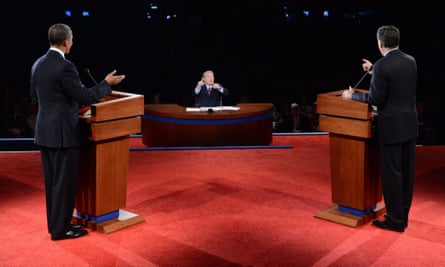After a seemingly endless parade of campaign announcements and abandonments, debates and stump speeches – not to forget weekly controversies born from the mouth of Donald Trump – the 2016 presidential election is finally upon us.
Starting next month, voters will finally begin to cast their ballots. Here are the key dates to circle on your calendar as election day draws near.
1 February
The first contest of the 2016 election cycle will be the Iowa caucuses. The traditional saying is that there are three tickets out of Iowa, meaning that only the top three finishers in each party’s caucuses have a chance of securing the nomination. That might not be true this year – though there are only three Democrats running, there are a dozen Republicans still in the race – but Iowa may represent the last gasp of struggling candidates like Democrat Martin O’Malley and Republicans Mike Huckabee and Rick Santorum. Such campaigns are going all-in in the Hawkeye state, in the hope of a dramatic resuscitation.
9 February
Just nine days later, New Hampshire’s first-in-the-nation primary will be a key indicator of how long each party’s contests will go. On the Democratic side, a win by Vermont senator Bernie Sanders over Hillary Clinton could lead to an extended campaign. A victory by the former secretary of state in the Granite state could end the Democratic primary early. On the Republican side, a win by businessman Donald Trump could set off a long and chaotic primary contest.
20 February
There are two contests on this day. The GOP holds the first-in-the-south primary in South Carolina, while Democrats hold caucuses in Nevada. South Carolina, famous for ugly and vicious politics, will be an important contest as top-tier candidates like Ted Cruz, Marco Rubio and Trump face off in a southern state which is home to a significant population of veterans. Furthermore, Nevada will be an important test of Bernie Sanders’ strength outside of Iowa and New Hampshire.
1 March
The SEC primary – aka “Super Tuesday” – is named after the Southeastern Conference in college football. It will feature primary elections in six southern states. Other states, including Massachusetts and Minnesota, will also hold contests that day. Candidates like Cruz and Trump have long been campaigning in southern states; a decisive performance could elevate one such hopeful as a clear frontrunner.
15 March
Republican National Committee rules require early primaries to award delegates to the convention in Cleveland proportionally. This changes on 15 March. Starting then, states can become winner-takes-all, the top vote-getter receiving all the delegates. Florida and Ohio vote on 15 March and are winner-takes-all. With Florida boasting two presidential candidates in Jeb Bush and Marco Rubio and Ohio’s governor, John Kasich, running too, these contests could prove key benchmarks. It’s likely they will be must-wins for any home state candidate still participating.
7 June
The last primaries of 2016, with five states including California and New Jersey holding elections. Normally, primaries on 7 June are an afterthought. However, in a topsy-turvy Republican contest that has defied all expectations, these contests could yet be decisive.
18 July
The Republicans convention begins, in Cleveland. It could be the first contested convention since 1976, if no candidate has attained the necessary majority of delegates. If things are not quite so exciting, this will still mark the unveiling of the Republican platform and the vice-presidential nominee.
25 July
The Democratic convention in Philadelphia is likely to be far less chaotic. However, in addition to the unveiling of the vice-presidential nominee, it is likely to be filled with fierce ideological debates. The influence of Bernie Sanders’ insurgent presidential run will continue to be felt throughout the party.
26 September

The first presidential debate will take place at Wright State University in Dayton, Ohio. There will be three debates between the presidential candidates and one for the vice-presidential candidates. The first debate of 2012 proved momentous: Barack Obama gave a subpar performance which allowed Mitt Romney to elbow his way into the lead. The momentous part, though, was the improvement in the president’s performance that was provoked by the debate.
8 November
Finally, on the first Tuesday after the first Monday in November, well over a hundred million Americans will go to the polls to elect the next president of the United States.
